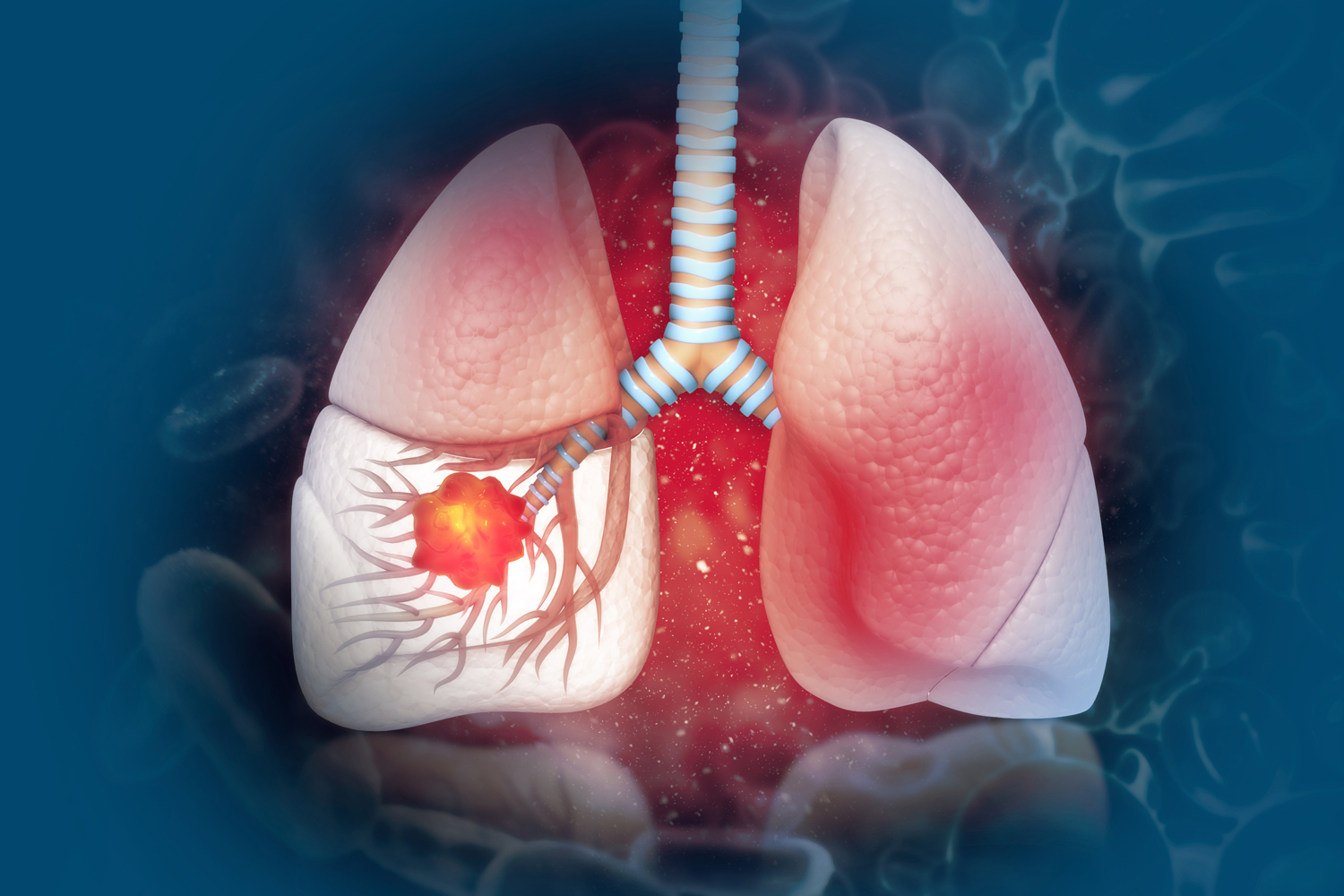Every week, the editors of Cancer Today magazine bring you the top news for cancer patients from around the internet. Stay up to date with the latest in cancer research and care by subscribing to our e-newsletter.
Treatment Combo Improves Survival in EGFR-positive NSCLC
People with EGFR-positive non-small cell lung cancer (NSCLC) who received both the targeted therapy drug Tagrisso (osimertinib) and chemotherapy lived longer than those who took Tagrisso alone, according to a study presented at the 2025 World Conference on Lung Cancer in Barcelona, Spain. In a phase III clinical trial, 557 people with EGFR-positive locally advanced or metastatic NSCLC were randomly assigned to receive either Tagrisso and chemotherapy or Tagrisso alone. People who received the combination survived for a median of 47.5 months, compared with 37.6 in the Tagrisso-only group, Oncology News Central reported. At three years, 63% of those who received the combination were alive, compared with 51% of the single-drug group. People who received the combination experienced more toxicity from the addition of chemotherapy, but researchers said the side effects were manageable and tolerable. “These compelling overall survival results from the FLAURA2 trial confirm osimertinib plus chemotherapy as the first-line standard of care in EGFR-[mutated] advanced non-small cell lung cancer,” David Planchard, the study’s lead author and a thoracic oncologist at Institut Gustave Roussy in Villejuif, France, said during his presentation at the conference.
FDA Approves Implant That Dispenses Chemotherapy into the Bladder
The Food and Drug Administration has approved a tiny pretzel-shaped drug-delivery device that slowly releases the chemotherapy drug gemcitabine to eliminate bladder cancer tumors. The implant—named Inlexzo—has been authorized for use in people with non-muscle-invasive bladder cancer that did not respond to Bacillus Calmette-Guerin (BCG), an immunotherapy used to treat bladder cancer, OncLive reported. The implant, which is inserted using a catheter, stays in the bladder and steadily dispenses gemcitabine for several weeks. Approval for the device, which previously was called TAR-200, was based on results of a phase II clinical trial published July 30, 2025, in the Journal of Clinical Oncology. The trial studied 85 people who received the device to treat non-muscle-invasive bladder cancer that had progressed after treatment with BCG. Participants received a new implant every three weeks for six months, followed by every three months for the next two years. Researchers found 70 of the 85 people on this treatment, or 82.4%, had their tumors disappear. “I see many patients [who] ultimately become BCG-unresponsive and often face life-altering bladder removal,” Sia Daneshmand, the trial’s principal investigator and the director of urologic oncology at the USC Norris Comprehensive Cancer Center in Los Angeles, said in a press release. “These patients now may be ideal candidates for newly approved Inlexzo.” (Read more about an earlier clinical trial of Inlexzo in bladder cancer.)
Intense Exercise May Help Ward Off Cancer Recurrence
Working out at high intensity appears to release immune-enhancing proteins into the blood that may help prevent breast cancer recurrence, according to a study published in Breast Cancer Research and Treatment. Research has shown physical activity can help stop cancer from returning, but scientists have been unsure about the exact mechanism behind exercise’s protective effect. In a clinical trial, 32 breast cancer survivors who did not regularly work out provided blood samples and then completed 45 minutes of either high-intensity weightlifting or high-intensity interval training on a treadmill, stationary bike or rowing machine. Afterward, researchers again drew blood from the survivors. They exposed plasma from both blood samples to breast cancer cells grown in a lab. Blood taken before physical activity had no impact on the cancer cells, while blood drawn after exercise caused cancer cells to stop growing or die, the Washington Post reported. Researchers found the blood taken after the workout had high levels of certain myokines, which are proteins that support immune function that are released when muscles contract. “Our work shows that exercise can directly influence cancer biology, suppressing tumor growth through powerful molecular signals,” Robert Newton, the study’s senior author and the deputy director of the Exercise Medicine Research Institute at Edith Cowan University in Perth, Australia, told the Post.
Cancer Today magazine is free to cancer patients, survivors and caregivers who live in the U.S. Subscribe here to receive four issues per year.





